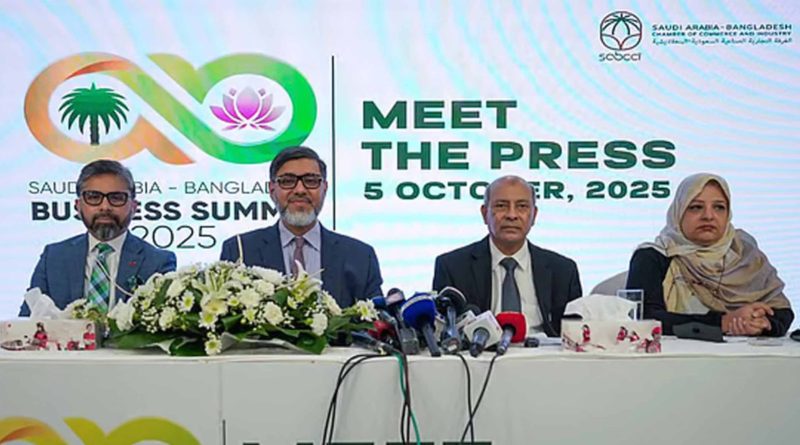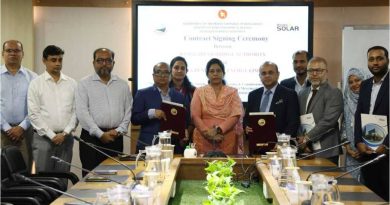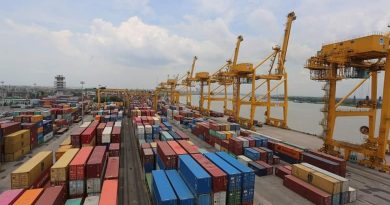Bangladesh and Saudi Arabia have officially launched the Saudi Arabia-Bangladesh Chamber of Commerce and Industry (SABCCI) in Dhaka — marking a major step toward deepening trade, investment, and manpower cooperation between the two nations.
At a press briefing held in Gulshan yesterday, SABCCI President Ashraful Haq Chowdhury said the formation of the joint chamber was “long overdue.” Despite strong diplomatic and cultural relations spanning five decades, he noted, there had been no formal platform to facilitate business and economic collaboration.
“With support from Bangladesh’s Ministry of Foreign Affairs, Ministry of Commerce, and key Saudi stakeholders, SABCCI is now a reality,” Chowdhury said. He added that the chamber will focus on expanding cooperation in ready-made garments, IT, digital finance, agro-products, and skilled manpower exports — sectors where Bangladesh has strong potential.
Bangladesh exported goods worth $310 million to Saudi Arabia in FY2024-25, with total bilateral trade reaching $2 billion. Saudi Arabia, the largest economy in the Middle East, also serves as Bangladesh’s biggest overseas labour destination, currently employing over three million Bangladeshi workers.
Chowdhury urged Saudi investors to explore opportunities in petrochemicals, oil refining, green technology, and port management, noting that the government has already allocated 300 acres of land in the National Special Economic Zone (NSEZ) in Chattogram for Saudi ventures.
The launch coincides with the three-day Saudi–Bangladesh Business Summit, beginning today at the Sheraton Dhaka, featuring a 20-member Saudi business delegation. The highlight of the summit — the SABCCI Business Forum — will be inaugurated on October 7, bringing together senior policymakers, investors, and economists from both countries.
Uzma Chowdhury, director of SABCCI and senior executive of PRAN-RFL, stressed the importance of transforming Bangladesh’s export model by integrating IT services and skilled labour, particularly in healthcare.
“PRAN-RFL products have had a strong presence in Saudi markets for over 25 years,” she said. “But beyond product exports, we now need a more integrated economic partnership.”
She pointed out challenges such as export registration delays and visa barriers, expressing optimism that SABCCI could help resolve these through policy advocacy. “We want to unlock the potential of our skilled workforce — from nurses and technicians to IT professionals — and make Saudi Arabia a priority destination.”
Ahmad Yusuf Walid, vice-president of SABCCI, said the idea for the chamber began two years ago during informal discussions with Saudi business leaders and members of the Bangladeshi diaspora. “A platform like this should have been created long ago,” he said. “Our aim is to connect businesses, facilitate trade, and support entrepreneurs on both sides.”
Mesbaul Asif Siddiqui, deputy managing director of City Bank and SABCCI director, emphasized the need to strengthen Bangladesh’s financial infrastructure to attract Saudi investment. “Saudi Arabia’s $1.24 trillion economy offers immense potential, but we need policy consistency and better facilitation to bring in FDI,” he said.
He identified oil refining, healthcare, IT, and infrastructure, especially within the NSEZ, as promising sectors for Saudi investors. “If our banks are better capitalised, we can think beyond borders and compete internationally,” he added.
With SABCCI now in place, both nations are expected to move toward a more structured, long-term partnership — bridging business opportunities and accelerating Bangladesh’s integration into Middle Eastern trade networks.






